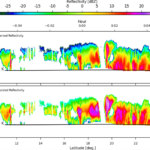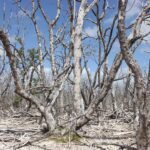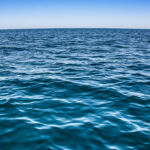ESSIC Director Antonio Busalacchi appeared as a guest on the first edition of Research Matters, a new University of Maryland production, and he expressed a responsibility for this university to lead the charge to “Save the Bay.”
The first edition of the program, which brings top faculty together to discuss a particular issue, focuses on the environmental and ecological challenges of the Chesapeake Bay and the role that the University of Maryland plays in improving the condition of the state’s valuable natural resource.
“We have the responsibility to study this in a sort of earth systems approach and looking at these multiple stressors,” Busalacchi said on the program, referring to issues like climate change, sea level rise and urban sprawl, all of which affect the bay.
Busalacchi said that the university is in excellent position to train the next generation of earth and environmental scientists and fulfill a responsibility to study problems related to the bay. He said that “830 of the world’s leading weather and climate scientists” will be moving into the National Center for Weather and Climate Prediction in the M-Square Research Park – and right next to the ESSIC building.
“Together when you consider our breadth of faculty in the environmental sciences and the fact that the NASA Goddard Space Flight Center is just 5 miles down the road, arguably we have one of the largest, if not the largest, collection of earth scientists anywhere in the world,” Busalacchi said.
In a “grades” portion of the program, Busalacchi gave current efforts to improve bay conditions a C- because efforts, while “good and well-intentioned,” have not been brought together across disciplines.
His idea that efforts to help the bay must bridge across all colleges at the university was echoed by host Don Kettl, dean of the School of Public Policy, when discussing the “big contribution the university could make.”
“Our students must have appreciation for all sectors that are impacting the bay if we’re going to ultimately solve the problems of the bay,” Busalacchi said. “It’s a challenging problem, but also it’s a problem that we have to take on.”
The first Research Matters segment on the Chesapeake Bay can be viewed in its entirety here.





